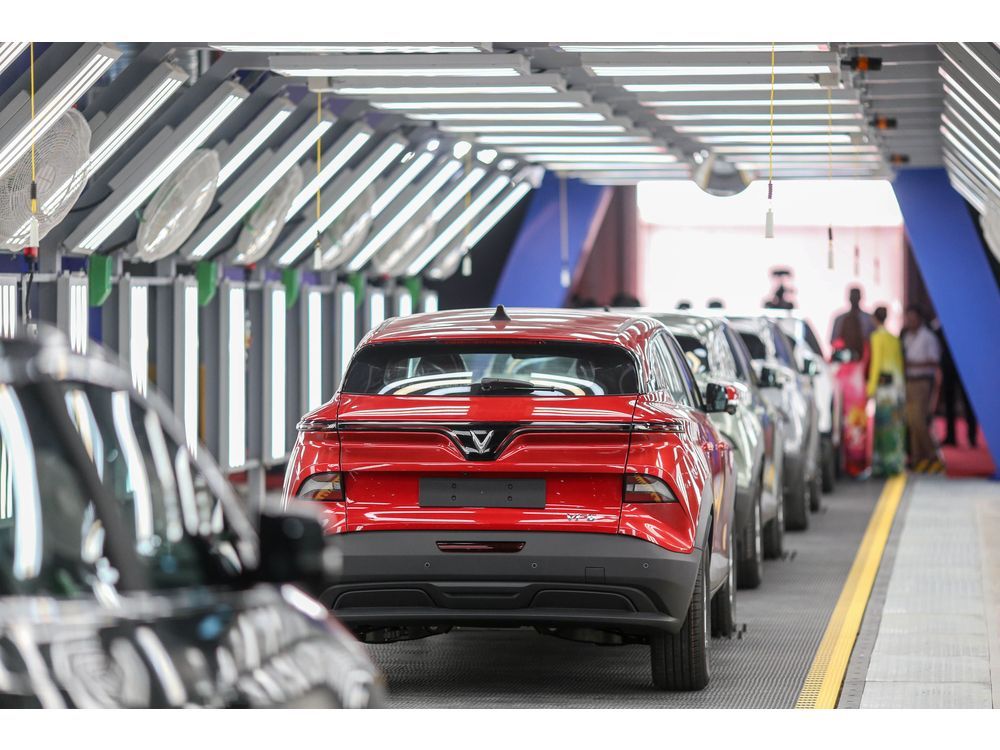Technology
Electric Cars Surge in Developing Nations, Surpassing Fossil Fuels

The electric vehicle (EV) market is experiencing a significant transformation in developing countries. Recent data reveals that nations such as Nepal and Costa Rica have seen a surge in electric car purchases, outpacing traditional fossil-fuel vehicles. This trend is fueled by decreasing battery prices and the introduction of affordable, locally-manufactured electric vehicles. Notably, China is on track to sell more electric cars in the last quarter of 2023 than the total number of all cars sold in the United States, highlighting a remarkable shift in global automotive dynamics.
According to Colin McKerracher, head of transport at BloombergNEF, this rapid adoption is indicative of broader trends affecting global oil demand. In a recent discussion, McKerracher emphasized the implications of increased EV sales on traditional oil reliance, particularly in developing markets. As electric vehicles become more accessible, the transition is not solely motivated by environmental concerns; it is increasingly driven by economic factors.
Growing Adoption in Emerging Economies
The rise of electric vehicles in developing countries can be attributed to a combination of affordability and consumer preference. For instance, in Nepal, approximately 70% of new car sales are electric, while 60% of sales in Thailand and 40% in Vietnam reflect a similar trend. These figures demonstrate that many emerging economies are leapfrogging traditional automotive markets, where EV adoption has stagnated.
McKerracher pointed out that countries with lower average incomes are often more price-sensitive. As electric vehicles become cheaper, driven by local manufacturing and decreasing battery costs, consumers in these regions are more likely to embrace them. In this context, China serves as a prime example, as organic consumer demand for EVs accelerated significantly, surpassing government targets three years earlier than expected.
In India, a notable shift is occurring as well. Consumers are beginning to choose electric vehicles over their fossil-fuel counterparts. Notably, the recent purchase of a Hyundai electric vehicle by a consumer in India symbolizes this change. The growing availability of affordable models from Indian manufacturers, such as BYD, is also contributing to this transition.
Global Implications for Oil Demand
The implications of expanding electric vehicle markets are profound. McKerracher noted that electric vehicles are currently displacing around 2 million barrels of oil per day, a figure that is expected to grow as more consumers switch to EVs. The trend is particularly relevant in countries like Norway, where the adoption of electric vehicles is leading to a 3-4% annual decline in liquid fuel demand for road transport.
BloombergNEF forecasts that global road oil demand could peak around 2029, driven by the increasing share of electric vehicles in the market. This development is noteworthy, as it highlights the potential for electric vehicles to reshape not just local markets, but also the global oil landscape. As more developing countries adopt EV technology, the reliance on fossil fuels may diminish, prompting a reevaluation of energy policies worldwide.
The rise of electric vehicles in developing countries is a multifaceted phenomenon, influenced by economics, consumer behavior, and local manufacturing capabilities. While the transition presents challenges, it also offers new opportunities for both consumers and manufacturers. As countries like Nepal, Costa Rica, and India embrace electric mobility, the global automotive industry is likely to witness further shifts towards electrification, with significant implications for oil demand and environmental sustainability.
-

 Science3 months ago
Science3 months agoToyoake City Proposes Daily Two-Hour Smartphone Use Limit
-

 Health4 months ago
Health4 months agoB.C. Review Reveals Urgent Need for Rare-Disease Drug Reforms
-

 Top Stories4 months ago
Top Stories4 months agoPedestrian Fatally Injured in Esquimalt Collision on August 14
-

 Technology3 months ago
Technology3 months agoDark Adventure Game “Bye Sweet Carole” Set for October Release
-

 World3 months ago
World3 months agoJimmy Lai’s Defense Challenges Charges Under National Security Law
-

 Lifestyle4 months ago
Lifestyle4 months agoVictoria’s Pop-Up Shop Shines Light on B.C.’s Wolf Cull
-

 Technology4 months ago
Technology4 months agoKonami Revives Iconic Metal Gear Solid Delta Ahead of Release
-

 Technology3 months ago
Technology3 months agoApple Expands Self-Service Repair Program to Canada
-

 Technology3 months ago
Technology3 months agoSnapmaker U1 Color 3D Printer Redefines Speed and Sustainability
-

 Technology3 months ago
Technology3 months agoAION Folding Knife: Redefining EDC Design with Premium Materials
-

 Technology4 months ago
Technology4 months agoSolve Today’s Wordle Challenge: Hints and Answer for August 19
-

 Business4 months ago
Business4 months agoGordon Murray Automotive Unveils S1 LM and Le Mans GTR at Monterey









